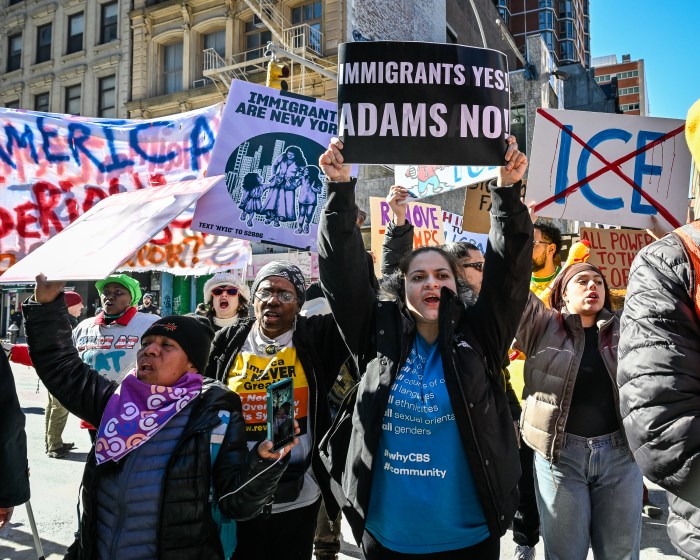Gov. Andrew Cuomo and NYPD officials said on Tuesday they support banning repeat sexual offenders from the subway system.
Cuomo, speaking at an unrelated news conference in Albany, said anyone with two or more subway-related sexual assault convictions should be banned from the system.
"I understand civil rights and civil liberties and access to transportation, but … if you are convicted of two sexual offenses on the subway system where groping, touching, grinding is a major problem and recidivism is a major problem, I fully support saying after the second conviction you’re banned from going back to the subway," Cuomo said. "But look, the precedent is set: We have sexual predators who get locked up and get released and then you say, common sense, we don’t want them locating near a school, near areas where they have in the past targeted victims. You have people who target victims in the subways. And that’s where they go. Many people, crowded areas, certain techniques — and that’s where they go."
Earlier in the day, Chief of Detectives Dermot Shea said it was important to "not forget about the victims" and that people shouldn’t have to worry about repeat offenders.
"To me it defies logic how somebody that has been arrested over and over and has shown what they intend to do, and to let them out and do the exact same thing on this subway system," Shea said. "Women should not be subjected on the train … These are heinous, despicable acts and we can, and I think we should, do better for victims."
Last year, there were 866 complainants of a sex crime in the subway system, according to the NYPD’s statistics, and 373 arrests. It wasn’t immediately clear how many of those arrests were repeat offenders.
“We support legislation that would ban serial sex offenders from the subway and we look forward to working with the Governor and the Legislature to implement it into law," said MTA president Pat Foye.
Alphonso David, counsel to the governor, said that California implemented a similar ban years ago.
"California did this a number of years ago and they have different criteria depending on the number of incidents. So it can be for 90 days; it could be for 180 days; it could be a year," he said. "There are different statutes around the country, and we’re going to be studying those to determine the appropriate threshold for banning people after a certain period of time."
Cuomo said he was open to discuss the length of such a ban in New York.
With Matthew Chayes




































